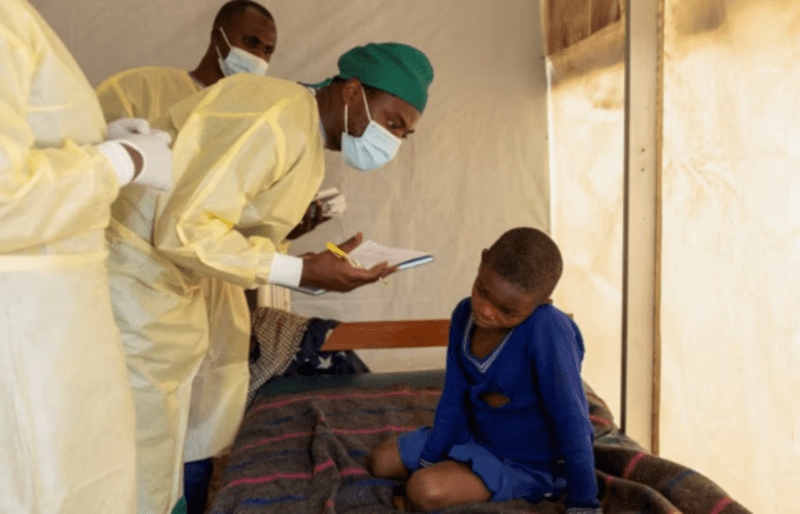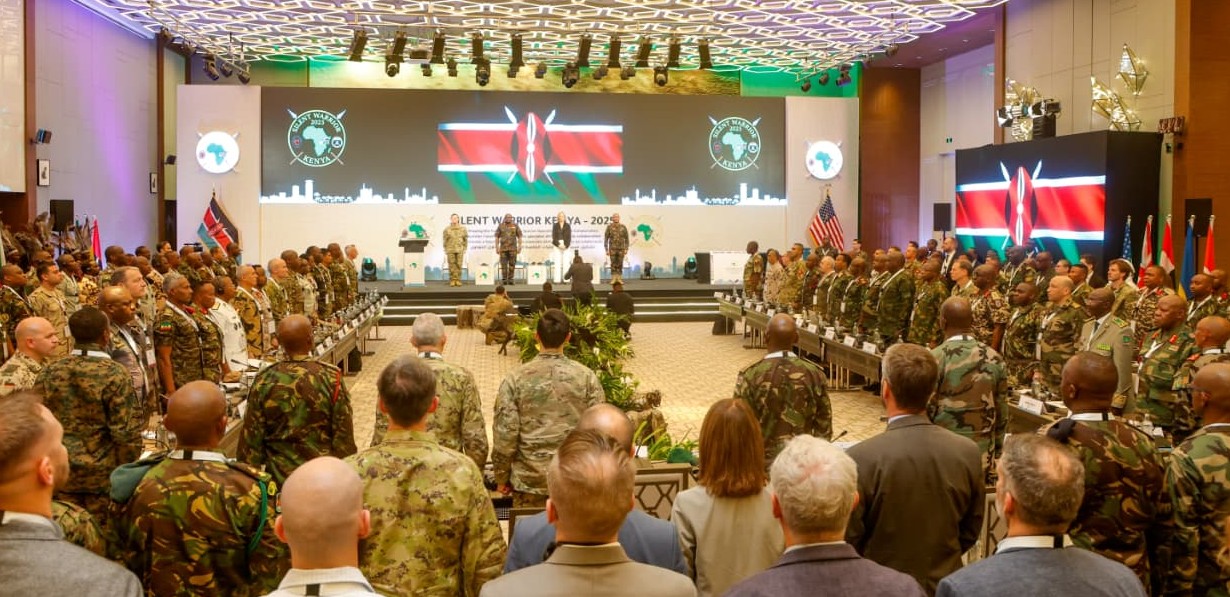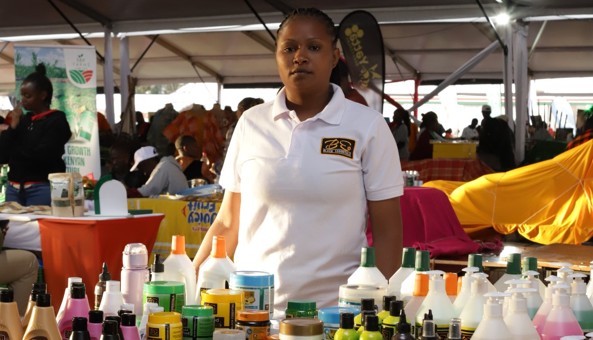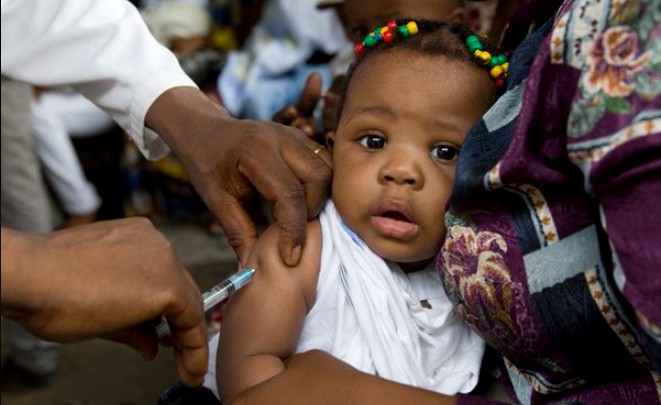WHO declares Mpox public health emergency of international concern

This is the second time in two years the organisation has issued an alert for the disease.
The World Health Organization (WHO) has declared Mpox a public health emergency of international concern (PHEIC), due to the upsurge of the disease in African countries.
This is the second time in two years the organisation has issued an alert for the disease.
More To Read
- Two new Mpox cases confirmed in Kenya, including patient who recently returned from South Sudan
- Mpox detected in Garissa, patient isolated as officials trace contacts
- Namibia declares mpox outbreak after confirmed case in Swakopmund
- Mpox cases in Africa surpass 190,000, deaths near 2,000: Africa CDC
- Kenya battles rising mpox infections as WHO lifts global emergency
- Mpox deaths near 2,000 in Africa since 2024 amid recent decline in cases: Africa CDC
According to WHO Director-General Tedros Adhanom Ghebreyesus, the upsurge of Mpox in the Democratic Republic of the Congo (DRC) and several other countries in Africa, constitutes a public health emergency under the International Health Regulations (2005) (IHR).
"The emergence of a new clade of Mpox, its rapid spread in eastern DRC, and the reporting of cases in several neighbouring countries are very worrying. On top of outbreaks of other Mpox clades in DRC and other countries in Africa, it’s clear that a coordinated international response is needed to stop these outbreaks and save lives," Tedros said on Wednesday.
Tedros’s declaration came following the advice of an IHR Emergency Committee of independent experts who met earlier in the day to review data presented by experts from WHO and affected countries.
The Committee informed the Director General that it considers the upsurge of Mpox to be a PHEIC, with the potential to spread further across countries in Africa and possibly outside the continent.
The organisation noted that the Director General will share the report of the Committee’s meeting and, based on the advice of the Committee, issue temporary recommendations to countries.
Curb spread
WHO Regional Director for Africa Matshidiso Moeti emphasised that efforts are underway with various teams in several countries to help reinforce measures to curb the spread of the virus.
 Dr. Tresor Wakilongo, verifies the evolution of skin lesions on the ear of Innocent, suffering from Mpox - an infectious disease caused by the monkeypox virus that sparks off a painful rash, enlarged lymph nodes and fever; at the treatment centre in Munigi, following Mpox cases in Nyiragongo territory near Goma, North Kivu province, Democratic Republic of the Congo July 19, 2024. (Photo: Reuters)
Dr. Tresor Wakilongo, verifies the evolution of skin lesions on the ear of Innocent, suffering from Mpox - an infectious disease caused by the monkeypox virus that sparks off a painful rash, enlarged lymph nodes and fever; at the treatment centre in Munigi, following Mpox cases in Nyiragongo territory near Goma, North Kivu province, Democratic Republic of the Congo July 19, 2024. (Photo: Reuters)
"Significant efforts are already underway in close collaboration with communities and governments, with our country teams working on the frontlines to help reinforce measures to curb Mpox. With the growing spread of the virus, we’re scaling up further through coordinated international action to support countries bring the outbreaks to an end," he said.
Committee Chair Professor Dimie Ogoina added that the current upsurge of Mpox in parts of Africa, along with the spread of a new sexually transmissible strain of the monkeypox virus, is an emergency, not only for Africa but for the entire globe.
"Mpox, originating in Africa, was neglected there, and later caused a global outbreak in 2022. It is time to act decisively to prevent history from repeating itself," Ogoina said.
Mpox, caused by an Orthopoxvirus, was first detected in humans in 1970, in the DRC. According to WHO, the disease is considered endemic to countries in central and west Africa.
In July 2022, the multi-country outbreak of Mpox was declared a PHEIC since it had spread rapidly via sexual contact across a range of countries where the virus had not been seen before. However, by May 2023, the PHEIC status was lifted following a significant and sustained decrease in global cases.
WHO notes that Mpox has been present in the DRC for over a decade, with the number of reported cases rising steadily each year. Last year, cases surged steadily, and the current year's total has already surpassed last year's, with more than 15,600 cases and 537 deaths reported.
Of particular concern is the emergence and swift spread of a new virus strain, clade 1b, in the DRC last year. The strain, WHO says, seems to be primarily spreading through sexual networks and has now been detected in neighbouring countries, leading to the declaration of the PHEIC.
In the past month, WHO notes that over 100 confirmed cases of clade 1b have been reported in four neighbouring countries that had not previously recorded Mpox cases. These include; Kenya, Burundi, Rwanda, and Uganda.
Experts believe that the actual number of cases is higher, as many clinically suspected cases have not been tested.
Multiple outbreaks of different Mpox strains have also occurred in various countries, each with different transmission methods and associated risks.
WHO’s Strategic Advisory Group of Experts on Immunization recommends the two currently used Mpox vaccines, which are also approved by WHO-listed national regulatory authorities and countries like Nigeria and the DRC.
Recently, the WHO Director-General initiated the Emergency Use Listing process for Mpox vaccines to speed up vaccine access for lower-income countries that have not yet been granted national regulatory approval.
This process also allows partners like Gavi and UNICEF to procure and distribute vaccines.
WHO reiterated that they are collaborating with countries and vaccine manufacturers to secure vaccine donations. The organisation said it is also working with partners through the interim Medical Countermeasures Network to ensure equitable access to vaccines, treatments, diagnostics, and other resources.
To support surveillance, preparedness, and response activities, WHO estimates an immediate funding need of US$ 15 million (Sh1,935,000,000 billion).
The organization said it has already released US$ 1.45 million (Sh187,050,000 billion) from its Contingency Fund for Emergencies and may need to release more funds soon. WHO has urged donors to fully fund the Mpox response.
Top Stories Today














































